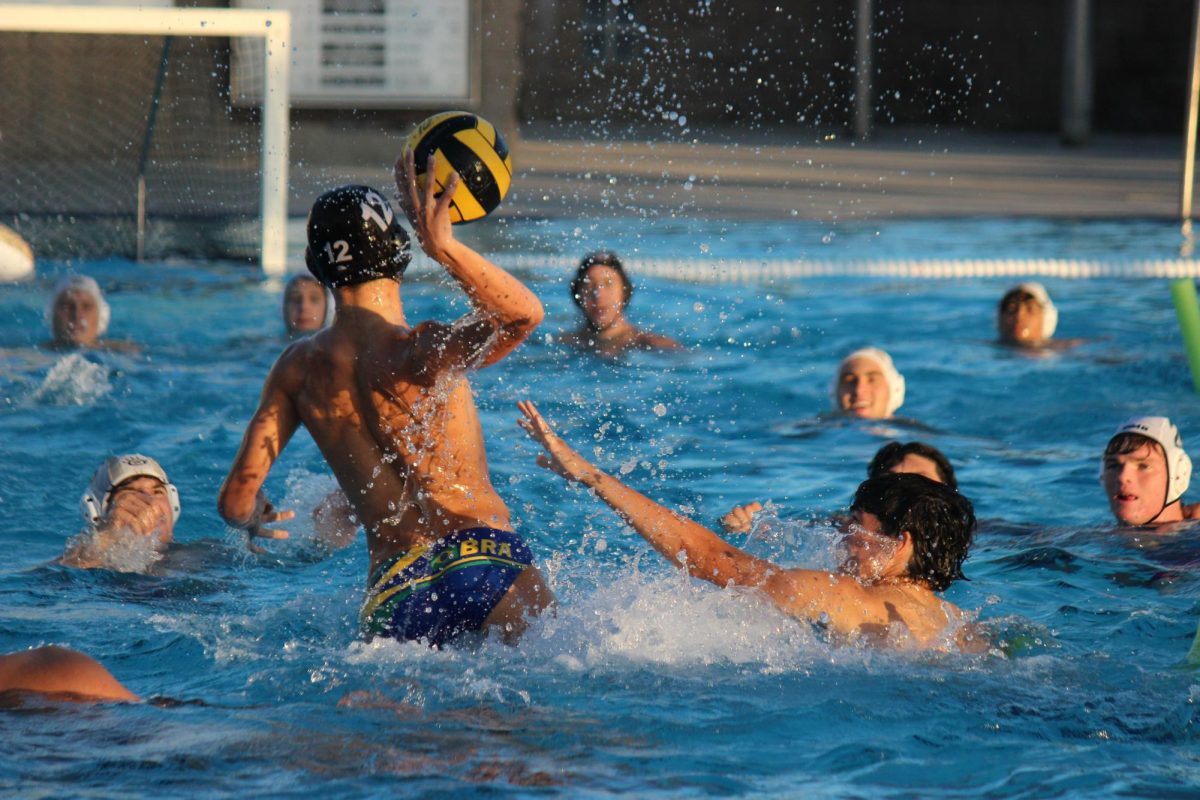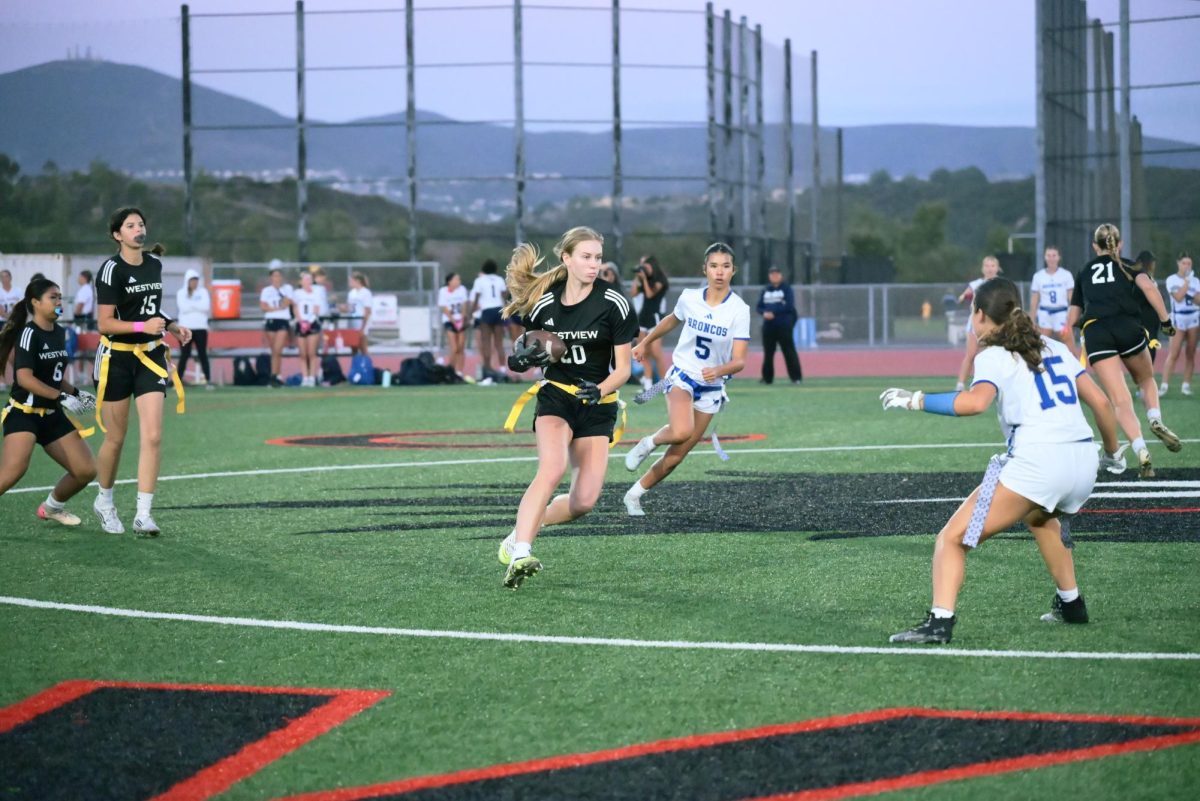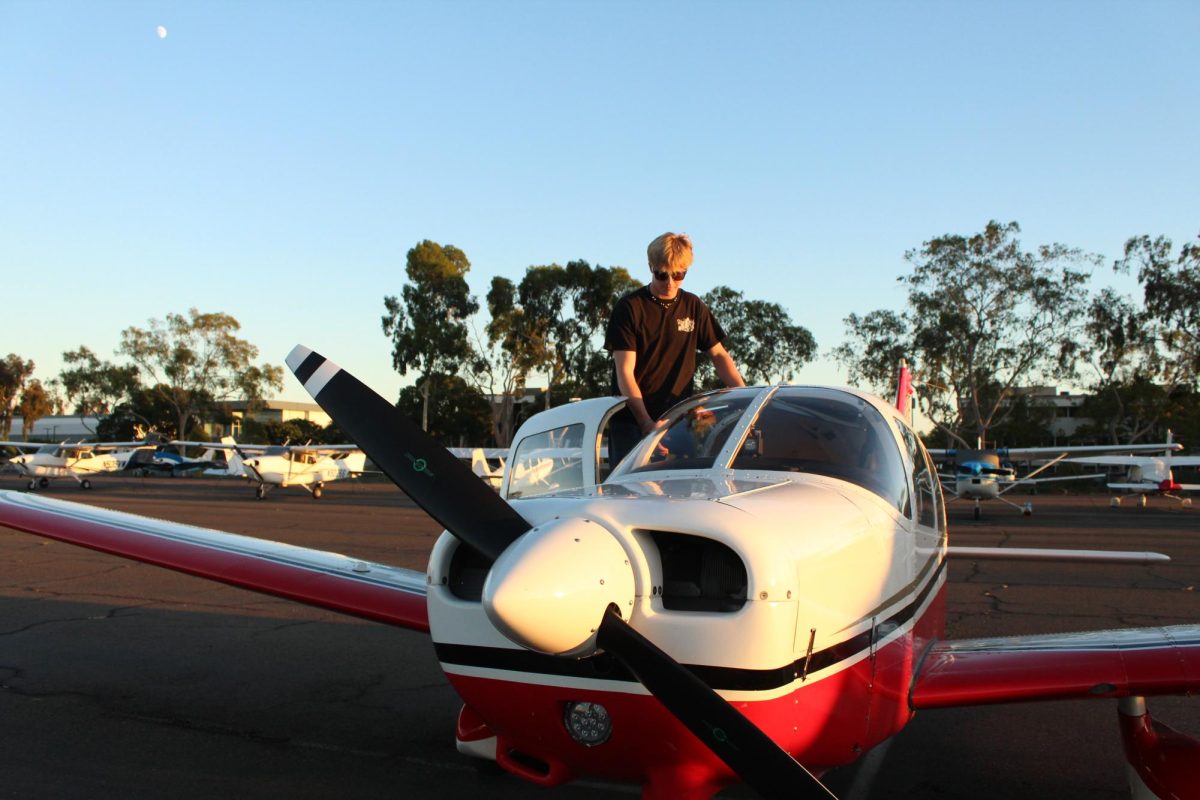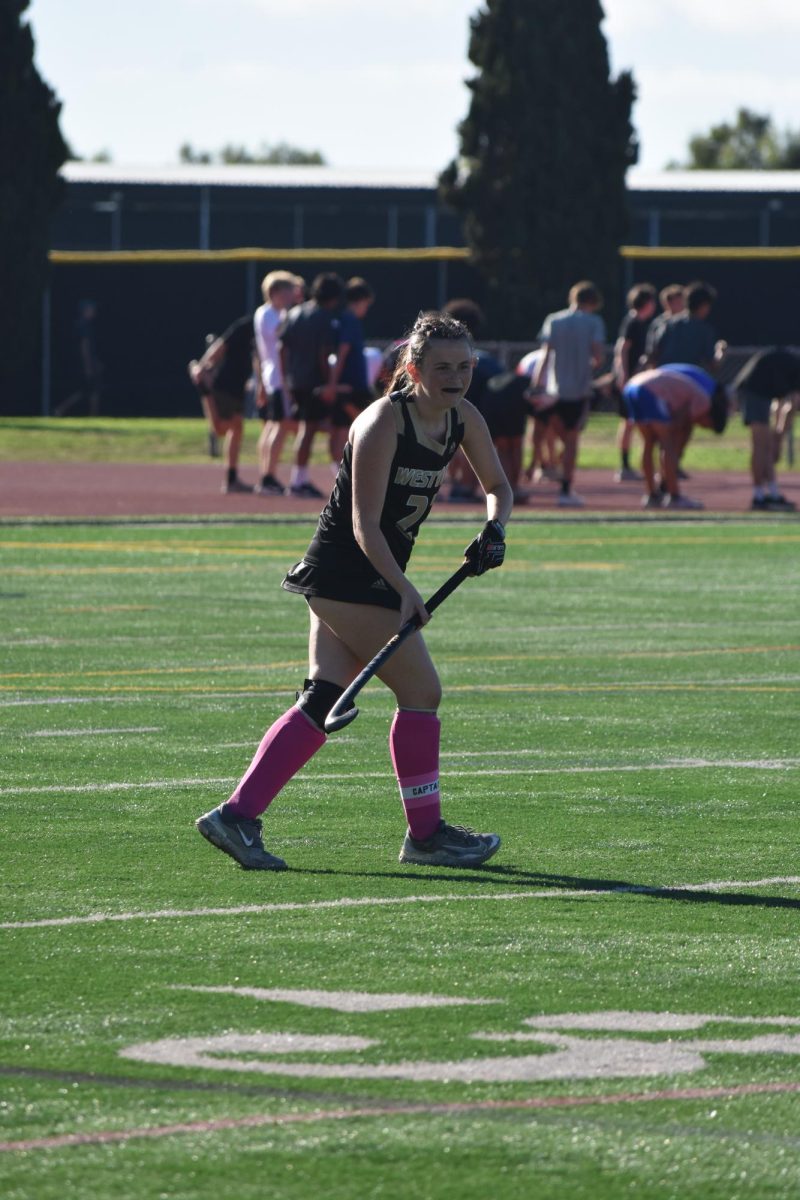
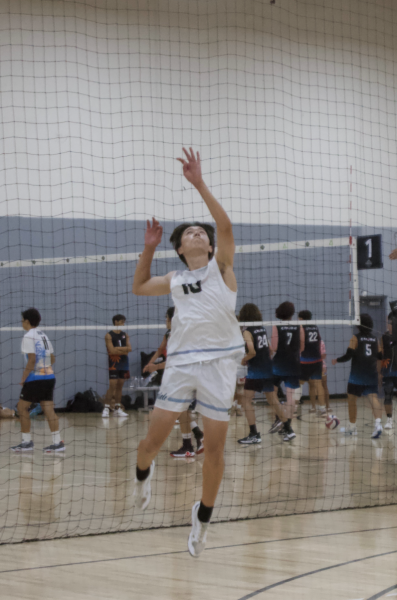
As KoaWong (12) stood on the volleyball court, he focused on the ball in his hand, feeling its weight. As he prepared to serve, the familiar swing of his arm brought back memories of his time on the the Lookouts baseball club—the dusty baseball field, the sun beating down on him as he waited for the next pitch, the thrill of making a diving catch, and the satisfaction of a well-timed throw echoed in his mind.
As he tossed the volleyball into the air, the arc of the ball reminded him of the fly balls he used to track as an outfielder. He could almost feel the grass under his cleats, hear the distant shouts from teammates, and sense the anticipation just before making the catch. That same determination flowed through him on the volleyball court as he prepared to strike the ball.
Wong currently is a player on the Seaside club volleyball team and plays as an outside. However, his athletic journey began with baseball, where he developed many of the skills that would later help him in volleyball. He started baseball at the age of 5, playing various positions throughout the years, eventually settling into the outfield. In baseball, Wong had to balance the intense training with a busy tournament schedule.
“It was definitely a commitment, doing tournaments on the weekends,” he said. “[I had to] wake up early to go to Temecula most of the time and go to Monday-through-Friday practices.”
As Wong progressed throughout high school as a player on the Westview baseball team, the growing pressure of the sport ultimately led to his decision to switch to volleyball early in his junior year.
“I stopped having fun because I felt pressure to do better [over] just having fun playing the game,” he said. “After the [JV] baseball season ended in my sophomore year, I started thinking about switching to volleyball. The only thing that really kept me playing baseball was the fact that I didn’t know much about volleyball at the time and I had already been playing baseball for such a long time.”
Wong said he found that many techniques used in baseball translated well into volleyball. Many of the skills overlapped and proved useful in volleyball.
“I transitioned my arm strength and running from baseball to volleyball’s hitting and jumping,” he said. “Throwing in general helped the most when going into volleyball since I was able to use basically the same motion for volleyball. Hand-eye coordination and timing from baseball really help in volleyball.”
Wong said he was apprehensive about switching sports because it meant making new connections. Despite his fears, the smaller team environment in volleyball proved to be an advantage and it provided a better space to make connections and branch out to the other players.
“It’s definitely easier to make friends in the smaller community and it’s nice being closer to the team,” he said. “Having a smaller team makes it easier to play together and it feels like I can connect with my team better.”
However, while his athletic foundation from baseball gave him an advantage, he spent significant time working on skills unique to volleyball like receiving and serving. It required much dedication to match the level of more experienced players.
“It’s a lot of use of different muscle groups that I’m not used to and groups I haven’t trained,” he said. “The aspect of volleyball that I struggled the most with was receiving because it is technique-based so I just had to practice a lot in my own time to get better. My serving is good but it’s just been very inconsistent so I still have to work on it.”
As Wong continues to grow and evolve as a player, he said he has many goals in his growing volleyball career and plans to continue participating in the sport in the future.
“The switch has been what I expected, maybe even better,” he said. “Many of the things that we work on in volleyball come from baseball so it hasn’t been very hard to join the new sport. My goal is to stay with it and play for a club in college.”
Wong encourages athletes to be less afraid of stepping out of their comfort zones and trying something new, pushing oneself to experiment with different sports or activities can lead to unexpected benefits and newfound passions.
“My advice would be to at least try it,” he said. “If you don’t like it, you can always just drop it because it’s always better to try it than not at all.”


